#戊
Explore tagged Tumblr posts
Text
戊 wù 5th heavenly stem
This little bugger keeps tripping me up!
You can put a million things inside it appearently. My brain haven't thought discriminating between the things inside was necessary.
I think I've only actually encountered these: ------------------------------------------------- 成 chéng completed, finished, fixed (and in eg 城,
咸 xián together (encountered in 喊 hǎn shout)
but here are a few more for fun: ---------------------------------- 威 wēi pomp, power; powerful; dominate
戚 qī relative; be related to; sad
戌 xū 11th terrestrial branch
戍 shù defend borders, guard frontiers
烕 xuè, miè to destroy; to exterminate to extinguish
蒧 zhēn, diǎn
蔵 zāng, cáng hide, conceal; hoard, store up
... ... ...
oh, I had not realised it occurs in 感 gǎn feel, perceive, emotion as well!
#戊#learning mandarin#mandarin#chinese mandarin#language learning#language nerding#hanzi#actually i think contrastive teaching of characters like this could be really helpful perceptually
13 notes
·
View notes
Text
#廉貞天府 #命宮在辰 #戊 #基本命盤解說 #2024運勢 #龍年運勢 #流年運勢 #命理 #紫微斗數 #astrology #horoacope #命盤 #ilucky986愛幸運紫微斗數命理
https://youtu.be/PWrtyB01MDo?feature=shared
#廉貞天府#命宮在辰#戊#基本命盤#解說#2024運勢#龍年運勢#甲辰運勢#紫微斗數#youtube#ilucky986愛幸運紫微斗數#chinese astrology#chinese horoscope#名人紫微斗數命盤#流年運勢#命宮#2023運勢#命理
0 notes
Text
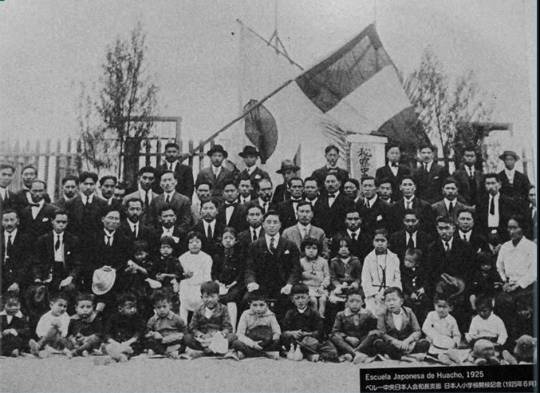
日本の考古学と科学思想の歴史。 第3章 : 日本の考古学者の皆さん、哲学的観点から見た新しい日本考古学へようこそ。 - 1868年当時、日本にはヨーロッパやアメリカで見られるような科学的根拠はありませんでした。日本がその精神やその一部を開放したのは、1868年から1869年の戊辰戦争後になります。米国のような国は日本の科学をモデルにするだろうから、非常に保守的だった。 日本で骨董品への関心が芽生えたのはいつ頃ですか? 江戸時代にはすでに骨董品への関心があったことが知られており、はるか昔にヨーロッパでも同様のことが起こりました。 日本の発掘の始まりは19世紀のほぼ終わりに始まり、数年前に日本でいくつかのローマ硬貨が発見されました。どうやら日本の封建領主は古遺物を収集するのが好きでした。おそらくそれらは中国のどこかの港から海岸に到着しました。日本語。 - 過去を知りたいという欲求は、どの大陸に属していても、すべての人類に共通のものであり、問題の時代についても同じことが言えます。 ヨーロッパやアメリカの様々な勢力が日本に到来したとき、彼らはその住民に影響を与えました。そのため、日本人によって日本考古学の父と考えられているエドワード・モースを、他の登場人物の中でも特に取り上げています。 19 世紀には、アメリカ哲学の最も偉大な学派の 1 つであるテイラー主義があり、これは台湾で考古学的発掘を行い、中国および韓国との関係を確立する日本の考古学の最も偉大な人物の 1 人である鳥居龍蔵に影響を与えることになります。 - 気に入っていただければ幸いです。今後の投稿でお会いしましょう。良い一週間をお過ごしください。 - HISTORY OF JAPANESE ARCHEOLOGY AND SCIENTIFIC THOUGHT. Chapter 3 : Welcome, Japanesearchaeologicalists, to a new installment of Japanese archaeology, seen from a philosophical point of view. Having said that, get comfortable and let's begin. - In 1868 Japan did not have a scientific base per se as we can see in Europe or the United States, it will be after the Boshin War of 1868-69 when Japan opened its mentality or part of it, since a good part of the population was very conservative because Countries like the United States would model Japanese sciences. When did interest in antiques arise in Japan? It is known that in the Edo period there was already interest in antiquities, something similar happened in Europe a long time ago. The beginning of the Japanese excavations began almost at the end of the 19th century, a few years ago some Roman coins were discovered in Japan, apparently a feudal lord in Japan liked to collect antiquities, they probably arrived from some port in China to the coasts Japanese. - The desire to know the past is something that all human beings share, no matter what continent you belong to and the same can be said about the era in question. When the different powers from Europe and the United States arrived in Japan, they influenced its inhabitants, thus we have, among other characters, Edward Morse, considered by the Japanese, the father of Japanese archaeology. During the 19th century we have one of the greatest schools of American philosophy, Taylorism, which will influence one of the greatest figures of Japanese archeology Torii Ryūzō who will carry out archaeological excavations in Taiwan, establishing relations with China and Korea. - I hope you liked it and see you in future posts, have a good week.
#日本#歴史#考古学#哲学#人類学#人類進化学#アメリカ合衆国#科学#東アジア#エドワードシルベスターモース#戊辰戦争#ヨーロッパ#江戸時代#テーラーリズム#ユネスコ#Japan#History#Archaeology#Philosophy#Anthropology#Human Evolution#United States of America#Science#East Asia#Edward Sylvester Morse#Boshin War#Europe#Edo Period#Taylorism#UNESCO
21 notes
·
View notes
Text
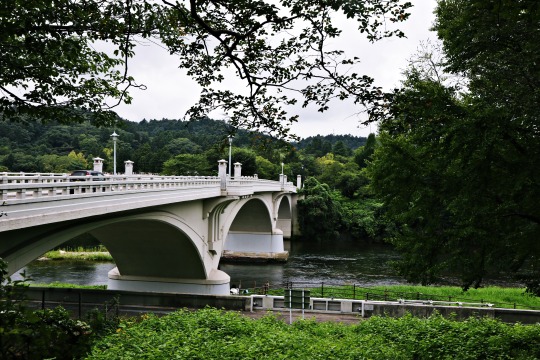
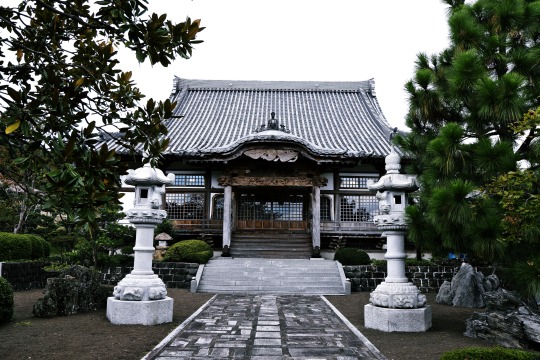

2023年8月27日(日)
旗巻古戦場に行ってきた
4 notes
·
View notes
Text
www.goumaikcn.com戊巴比妥鈉購買氰化鉀哪裏買無色無味毒藥銷售戊巴比妥钠购买氰化钾哪里买无色无味毒药
1 note
·
View note
Text
讀史有感20231228:給大清帝國多點時間的話,會有救嗎?
曾經聽大學教授分享過一種看法:其實大清帝國並不差,至少一直維持著領土的完整;相較之下,民國成立後的軍閥割據,似乎更是亂象叢生! 當年教授的這個說法,曾在我腦中激盪不已。難道說,如果再給大清帝國更多時間,它就有辦法邁向現代化? 曾經也聽過某教授曾說過:如果歐美國家不來東亞,東亞各國也會用自己的方式慢慢邁向工業社會的。但也有另一種論點是,如果歐美國家沒來過東亞,今日的東亞應該還是會繼續維持那套傳統帝國的模式。 讀歷史的時候,偶爾放下書本,讓這些想法在腦中思考著,也是一種樂趣。 不過,這些看似沒有標準答案,也不可能再次重演的過去,真的就一定不會有比較正確的答案嗎? 今日翻到一本歷史學家諶旭彬先生的著作《大變局:晚清改革五十年》,有了不一樣的收穫與體悟。 其實很多事情加上了「時間」,真的會有不一樣的感受。其實清朝從1861年開始自強運動,一直到1911年辛亥革命,只有短短的五十年可以…

View On WordPress
0 notes
Text
勉強メモ 野口良平『幕末的思考』みすず書房 第2部 第2章 勝者の思考と敗者の思考
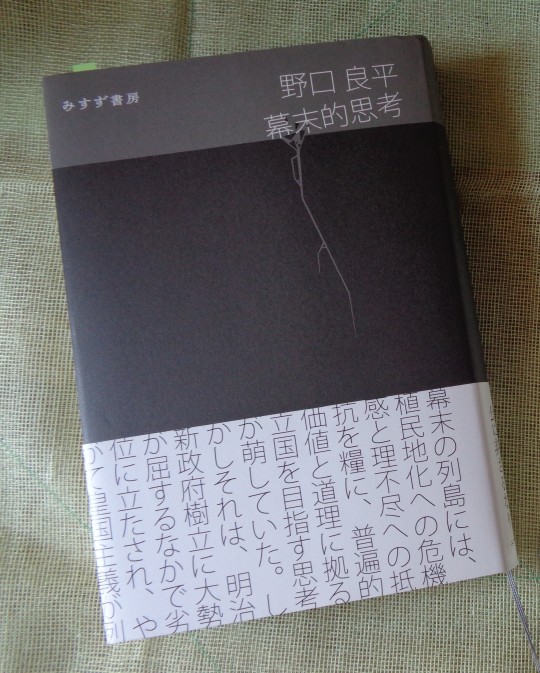
尊皇攘夷を掲げて、幕府方をたたきのめした新政府。 嘘っぱちと理不尽な犠牲者の屍の上に、どんな良い国を作るのか。
◆顕密二分法
新政府は「尊皇攘夷」のはずだから、これから攘夷をはじめるはずだと、人々は思っている。 政権を取るために、幕府方を賊呼ばわりしたことも見ている。 「賊」呼ばわりされ、殺され故郷を追われ路頭に迷う人もたくさん。
「人々に納得のいく説明をしなくてはいかん!」 と考え提言する新政府人もいた。(岩倉具視、加藤弘蔵(弘之))
だが新政府(大久保利通・西郷隆盛・木戸孝允・岩倉具視(あれ?))スタッフがやったのは、 近代国家を整え、富国強兵して急いで欧米諸国に肩を並べ、不平等条約を改正させようということ。
そのために、また方便をつかった。
顕密二分法(久野��先生が名付けたそうだ)。 【顕】=一般大衆には、天皇を信仰をさせ(「日本国民」を意識させた、ってことかな?)て、情報も知識も与えず、 【密】=指導者層だけでいろんなことを取り決めてしまう。
たとえば、最初は、「新政府になったら年貢が半減だぞ!」と相楽総三たちに宣伝させて民衆に協力させ、実はそんなことできないので、あとから相楽総三を「偽官軍」呼ばわりして殺してしまったのも、このやり方みたいだ(ちがうのかなこれは?)。
◆岩倉具視
永井路子『岩倉具視 言葉の皮を剥きながら』では、戊辰戦争のあと、岩倉は大して活躍してない、としているが……。
『幕末的思考』では、岩倉具視は、 「天下の人々は『これから新政府が攘夷をするはずだ』と思ってる。ちゃんと説明せねば」と具申していたという(「会計外交等ノ條々意見」)。
また、岩倉は、訪ねてきた薩摩の中村半次郎(桐野利秋)に 「で、いつ攘夷をはじめるのじゃ?」と聞いたそうだ。 そしたら中村が 「あなたはそんなこと言わない方がいい」と答えたので、 中村と一緒に来ていた有馬純雄(近藤勇の処刑に反対したんですって)が驚いて、あとで西郷どんにきいたら、
西郷は「ん~。あれは方便といふものぢゃ」と、答えたとか。 (「西郷わるい!」と私は思ったけど、著者は西郷どんにやさしい。その評価のわけは、次の章でじわじわわかる)
そういう岩倉なのに、なぜか次の場面では、大久保や木戸と一緒に【密】を共有する新政府スタッフになっている。
どこら辺で変わったのだろう。
◆敗者の思想
この章でいちばんゆさぶられたのは、-3の、敗者の側に立った人々のこと。
・雲井竜雄:米沢藩出身で、戦争被害を抑えるべく奔走した人
新政府に仕えるがすぐにやめ、新政府の理不尽にあって困窮する人々を助けようと「帰順部局点検所」をつくったが、これが新政府に睨まれ、死刑になってしまう。
・会津藩士、柴五朗:その人生の最後に語り残した記録が、石光真人編『ある明治人の記録』 (えっ! 読んだことあるけど、そんな本だとぜんぜん知らずに、あさってのことばっかりノートしてた;)
・柴五朗の兄柴四朗=東海散士(え、そうだったの!?)
会津藩士が日本を脱出し、アイルランドやスペインの独立戦争に身を投じ、女性闘士と交流したりする『佳人之奇遇』。面白そう~。
ハイチ革命を、東海散士は熱く語っているそうだ。 ハイチが今もどうなっちゃってるかと思うと、涙も凍りつく。 しかし、どうしてこんなことになっちゃってるんだろう。
・福沢諭吉と山川健二郎(白虎隊から東大総長へ)も、体制に従う範囲内で、「敗者」の名誉を訴えたそうだ。
・西村茂樹(明六社の同人、倫理学者) 福沢たちよりももっと根本的に、 「“朝敵”とか“賊”という捉え方がおかしい。賊と言ったら無実の人を殺して泥棒する人のことだ」といった。 えらい~!
・山本覚馬:鳥羽伏見で捉えられ、失明しても獄中から新政府方に建白書を出した、会津藩士。
新政府方と幕府方と、どちらも「義」でもって闘った。義と義がぶつかるのはなぜか、論考した(のかな?……ここ未消化です)
新島八重のお兄さんなのね。
また、-1で紹介された人々、
嘘をつきっぱなしの新政府に「協力しない」態度を表明した、 玉松操(錦の旗の考案者)や、福井の殿様、松平春嶽のことも、もっと知りたい。
雲井龍雄のことをもっと知りたいなあ。
さらにいろんな人のことを知りたくなった。
2023/04/25
1 note
·
View note
Photo
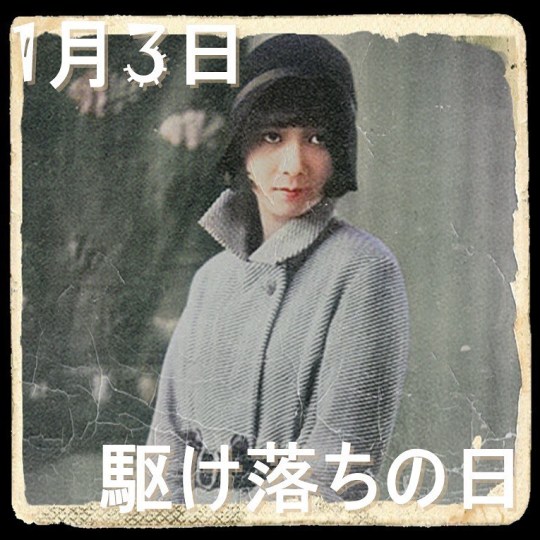
. (^o^)/おはよー(^▽^)ゴザイマース(^_-)-☆. . . 1月3日(火) #大安(辛酉) 旧暦 12/12 月齢 10.7 年始から3日目に当たり、年末まであと362日(閏年では363日)です。 . . 朝は希望に起き⤴️昼は努力に生き💪 夜を感謝に眠ろう😪💤夜が来ない 朝はありませんし、朝が来ない夜 はない💦睡眠は明日を迎える為の ☀️未来へのスタートです🏃♂💦 でお馴染みのRascalでございます😅. . 実は喪中らしいのですが、昨日は 初詣に明治神宮に行きました😅💦 久々に原宿駅廻りが一変して駅も 改装工事が終わったんでしょう✋ 広々とした感じが良くなってた㊗ お参りを終えると出店が出ている 所で、お神酒と屋台料理で一杯🍶 やるんですけど、例のプロパガンダ の一環で強制自粛させられてるん でしょう💢💢💢屋台の数も少な く、種類を販売する店も僅かなの が、寂しいもんです。。。_| ̄|○... 平民が楽しんではいけないって のがグローバリストの行動指針ダカラw (o゚д゚)マジスカ?\(__ )マジデスw . 「喪中に」してはいけない事で 調べてみたんだけど👀故人が 亡くなって49日の法要の期間だ け、結婚式や祝賀パーティー、式典 やら、神社への参拝は避けると あるんで大丈夫ですね✋以前に 聞いた話だと一年間は喪に服す ると、よく云われて来たけど❓ 間違った知識(o゚д゚)マジスカ? 結婚式でも、喪中の概念がない 人前式なら宜しいとあります✋ \(__ )マジデスwって事は49日 を過ぎちゃってる方は新年の 挨拶の年賀状も🙆って事デスw 感謝の意を大事にすればヨシッ! . 今日一日どなた様も💁♂お体ご自愛 なさって❤️お過ごし下さいませ🙋 モウ!��張るしか✋はない! ガンバリマショウ\(^O^)/ ワーイ! ✨本日もご安全に参りましょう✌️ . . ■今日は何の日■. #駆け落ちの日. 1938(昭和13)年1月3日(月)先勝.女優の岡田嘉子と杉本良吉が、樺太の国境を越えてソ連へ亡命。 駆け落ちとは、集団から逃げ出して、よその土地へ駆け込むという意味です。 この二人は、日本共産党員で新協劇団の演出家である杉本良吉が、当時日本領土であった 樺太の国境を越えてソ連へ亡命しのですが、不法入国となるため国家警察に逮捕され、僅か 3日足らずで2人は引き離されました。 . . #大安(ダイアン). 陰陽(おんよう)道で、旅行・結婚など万事によい日。 一切合切(イッサイガッサイ)が良いとされる日。 . 神吉日(カミヨシニチ). 「かみよしび」ともいい、神社への参拝や、祭礼、先祖を祀るなどの祭事にいいとされています。 この日は神社への参拝や、お墓まいりに行くといい日です。 . #大明日(ダイミョウニチ). 民間暦でいう吉日の一つ。 この日は、建築・旅行・婚姻・移転などすべてのことに大吉であって、他の凶日と重なっても忌む必要がないともいう。 . #母倉日(ボソウニチ). 暦で、母が子を育てるように、天が人間をいつくしむという日。 四季の土用には巳・午の日がこれにあたり大吉の日とされる。 . #八専間日(ハッセンマビ). 干と支の性質が同じ組み合わ��の多い期間のことですが、八専間日は八専の期間中に干と支の性質の組み合わせが同じでない日。 八専は凶日ですが、間日は凶日ではないとされています。 . . #ひとみの日. . #真田丸の戦い. . #王政復古の大号令(オウセイフッコノダイゴウレイ). . #戊辰戦争開戦の日. . . #くるみパンの日(毎月3日). #ビースリーの日(毎月3日). #みたらしだんごの日(毎月3~5日). #第1回NHK紅白歌合戦放送. #元始祭. #箱根駅伝復路(第99回箱根間往復大学駅伝競走). #ライスボウル2023(1984年 - ). . . ■本日の成句■. #笑う門には福来る(ワラウカドニハフクキタル). 【意味】 いつも楽しそうにしている家には、おのずと幸せがやってくるという意。 . . 1977(昭和52)年1月3日(月)赤口. #小沢真珠 (#おざわまじゅ) 【女優、タレント】 〔東京都新宿区神楽坂〕. . . (学芸大附属中小前) https://www.instagram.com/p/Cm7vvSvSB0M6Nds0vMBwxL2LSV63EA7aMVmvvw0/?igshid=NGJjMDIxMWI=
#大安#駆け落ちの日#大明日#母倉日#八専間日#ひとみの日#真田丸の戦い#王政復古の大号令#戊辰戦争開戦の日#くるみパンの日#ビースリーの日#みたらしだんごの日#第1回nhk紅白歌合戦放送#元始祭#箱根駅伝復路#ライスボウル2023#笑う門には福来る#小沢真珠#おざわまじゅ
0 notes
Text

雷電将軍 by 戊羽WUYU
164 notes
·
View notes
Text
[Hanfu · 漢服]The relationship between women in history is not just love rivals,
“but also thousands of years later, everyone knows that it is me and you.”
Let's get to know about them/她们 in China history.
1.【Han Dynasty】:Princess Jieyou (解忧公主) & Feng Liao (馮嫽)
Princess Jieyou (Chinese: 解忧公主; 121 BC – 49 BC), born Liu Jieyou (Chinese: 刘解忧), was a Chinese princess sent to marry the leader of the Wusun kingdom as part of the Western Han Chinese policy of heqin(和亲).
As the granddaughter of the disgraced Prince Liu Wu (劉戊) who had taken part in the disastrous Rebellion of the Seven States,her status was low enough that she was sent to replace Princess Liu Xijun (劉細君) after her untimely death and marry the Wusun king Cunzhou (岑陬).
Jieyou lived among the Wusun for fifty years and did much work to foster relations between the surrounding kingdoms and the Han. She was particularly reliant upon her attendant, Feng Liao, whom she dispatched as an emissary to Wusun kingdoms and even to the Han Court. She faced opposition from pro-Xiongnu members of the Wusun royalty, particularly Wengguimi’s Xiongnu wife. When word came that the Xiongnu planned to attack Wusun, she convinced her husband to send for aid from the Han Emperor. Emperor Wu of Han sent 150,000 cavalrymen to support the Wusun forces and drive back the Xiongnu.
In 51 BCE at the age of 70, Jieyou asked to be allowed to retire and return to the Han. Emperor Xuan of Han agreed and had her escorted back to Chang'an where she was welcomed with honor. She was given a grand palace with servants usually reserved for princesses of the imperial family. In 49 BCE, Jieyou died peacefully.
Feng Liao (馮嫽)
Feng Liao (馮嫽) was China's first official female diplomat,[citation needed] who represented the Han dynasty to Wusun (烏孫), which was in the Western Regions. It was a practice for the Imperial Court to foster alliances with the northern tribes via marriage, and two Han princesses had married Wusun kings.
Feng Liao was the maidservant of Princess Jieyou (解憂公主), who was married off to a Wusun king. Feng herself later married an influential Wusun general, whose good standing with Prince Wujiutu (烏就屠) of the kingdom later proved beneficial to the Han dynasty.
When Prince Wujiutu seized the throne of Wusun in 64 BC, after his father died, there was fear in the Imperial Court of Han that Wujiutu, whose mother was Xiongnu, would allow Wusun to become Xiongnu's vassal.
Zheng Ji, Governor of the Western Regions, recalled that Feng Liao had married into Wusun and with her familiarity of the Wusun customs, she was a prime candidate to persuade Wujiutu to ally his kingdom with Han. Wujiutu acceded and Emperor Xuan of Han (漢宣帝) sent for Feng. He praised her for her judgement and diplomacy, and appointed her as the official envoy to Wusun.
Wujiutu was conferred the title "Little King of Wusun" while his brother, the son by a Han princess, was named "Great King of Wusun". Wusun was divided between the two kings and tensions in that region were eased.
※Xiongnu: Xiongnu: A nomadic tribe that has occupied northern China for a long time. Later it gradually became a state. It harassed the borders of the Han Dynasty for a long time and robbed supplies.
------
With their efforts, the Wusun Kingdom gradually tended to support the Han Dynasty, and the Xiongnu's defeat in China also began.
------
2.【Tang Dynasty】:Shangguan Wan'er(上官婉儿)&Princess Taiping (太平公主)
Shangguan Wan'er/上官婉儿 (664 – 21 July 710) was a Chinese politician, poet, and imperial consort of the Wu Zhou and Tang dynasties. Described as a "female prime minister,"Shangguan rose from modest origins as a palace servant to become secretary and leading advisor to Empress Wu Zetian of Zhou. Under Empress Wu, Shangguan exercised responsibility for drafting imperial edicts and earned approbation for her writing style. She retained her influence as consort to Wu's son and successor, Emperor Zhongzong of Tang, holding the imperial consort rank of Zhaorong (昭容). Shangguan was also highly esteemed for her talent as a poet.Shangguan was also highly esteemed for her talent as a poet. In 710, after Emperor Zhongzong's death, Shangguan was killed during a palace coup that ended the regency of Empress Dowager Wei.
Princess Taiping (太平公主)lit. "Princess of Great Peace", personal name unknown, possibly Li Lingyue (李令月) (after 662 – 2 August 713) was a royal princess and prominent political figure of the Tang dynasty and her mother Wu Zetian's Zhou dynasty. She was the youngest daughter of Wu Zetian and Emperor Gaozong and was influential during the reigns of her mother and her elder brothers Emperor Zhongzong and Emperor Ruizong (both of whom reigned twice), particularly during Emperor Ruizong's second reign, when for three years until her death, she was the real power behind the throne.
She is the most famous and influential princess of the Tang dynasty and possibly in the whole history of China thanks to her power, ability and ambition. She was involved in political difficulties and developments during the reigns of her mother and brothers. Indeed, after the coup against Empress Dowager Wei, she became the real ruler of Tang. During the reign of Emperor Ruizong, she was not restricted by anything, the emperor issued rulings based on her views and the courtiers and the military flattered her and majority from every civil and military class joined her faction, so her power exceeded that of the emperor.
Eventually, however, a rivalry developed between her and her nephew, Emperor Ruizong's son, Crown Prince Li Longji. Both of them were hostile in power-sharing and they fought for the monopoly over power. After Emperor Ruizong yielded the throne to Li Longji (as Emperor Xuanzong) in 712, the conflict came to the political forefront, and openly, the court became a manifestation of conspiracy rather than the administration of the empire; in 713, Emperor Xuanzong, according to historical records, believing that she was planning to overthrow him, acted first, executing a large number of her powerful allies and forcing her to commit suicide.
------
The relationship between Shangguan Wan'er and Princess Taiping has always been written as "enemies" in official history, but with the phrase "千年万岁,椒花颂声", their friendship that has been buried for thousands of years was revealed.
The"千年万岁,椒花颂声" sentence comes from the epitaph written by Princess Taiping for Shangguan Wan'er. The original text is: "潇湘水断,宛委山倾,珠沉圆折,玉碎连城。甫瞻松槚,静听坟茔,千年万岁,椒花颂声”
Translation: Now that you are far away, the sky and the earth will lose their color. I'm afraid that all I can do in the future is to sit and look at the tea tree in front of your tomb. Maybe I can hear your voice again when I stand within an inch of the tomb. But this is a delusion after all, a quiet tomb, no beautiful face, a empty place of death. I hope that in a thousand or ten thousand years, there will still be people like me who remember you.
------
3.【Late Qing Dynasty】:Lü Bicheng(呂碧城) & Qiu Jin (秋瑾)
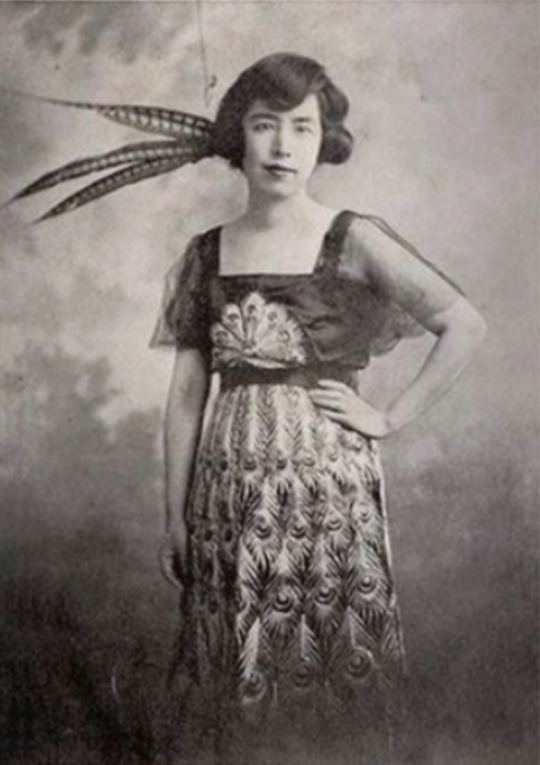
Lü Bicheng(呂碧城)also known as Alice Pichen Lee(1883–1943) was a Chinese writer, activist, newspaper editor, poet and school founder. She has been mentioned as one of the top four women in literature from the early Republic of China.
When she was four, her father retired to Lu'an, Anhui. She lived a life of comfort until the age of 12, when her father died in 1895. Because Lü Fengqi had no male heir, relatives of the Lü lineage contested for his inheritance, and Yan Shiyu and her four daughters were forced to move to Lai'an County to live with her natal family. When she was nine, Lü Bicheng was betrothed to a Wang family, but as her own family fortune declined, the Wang family broke off the marriage contract, giving the young Bicheng the stigma of a "rejected woman". The resulting emotional scar is often considered a major factor in her later decision to never marry.[8] Her widowed mother and the Lü girls were not well treated at the Yan family in rural Anhui. When Lü was 15 or 16, Yan Shiyu sent her to live with her maternal uncle Yan Langxuan (嚴朗軒), who was the salt administrator in Tanggu, the port city outside the northern metropolis of Tianjin. Her sister Huiru also joined her later.
During her stay in Tanggu, Qing China went through the tumultuous period of the failed Hundred Days' Reform of 1898, which brought about increasing awareness of women's education, and the Boxer Rebellion of 1900. In 1904, Mrs. Fang, the wife of her uncle's secretary, invited Lü Bicheng to visit a girls' school in Tianjin, but her uncle prevented her from going and severely reprimanded her. The next day, she ran away from her uncle's home, and took the train to Tianjin with no money or luggage. She wrote a letter to Mrs. Fang, who was staying at the dormitory of the Ta Kung Pao newspaper. Ying Lianzhi, the Catholic Manchu nobleman who founded the newspaper, read the letter and was so impressed by it that he made her an assistant editor. Lü Bicheng wrote a "progressive" ci that she had previously written, set to "A River Full of Red" ("Manjianghong") usually used to express heroic emotions. Ying transcribed the whole song in her diary and published it in L'impartial two days later. At the time, it was sensational for a woman to write for an influential national newspaper such as Ta Kung Pao. She was 21 years old. She used Ta Kung Pao to promote feminism and became a well-known figure.
Lü's ci poetry was published in the newspaper and it was very well received. She was the chief editor of the newspaper from 1904 to 1908. In 1904 she decided to improve education for girls. She had published her thoughts on women's rights and the general editor of the newspaper introduced her to Yan Fu who was an advocate for Western ideas. The Beiyang Women's Normal School was established that same year. At 23 Lü took on the job of principal of the school she had founded two years before. At first this school found it difficult to find girls who qualified for secondary education and students were brought in from Shanghai to make up the numbers.
Lü knew the revolutionary Qiu Jin and they had similar objectives but Lü did not join her in Japan when she was invited as she was unsure whether women should meddle in politics. She was then chosen to be secretary to Yuan Shikai, one of the most powerful people in China. When he set out to declare himself emperor of China she left, like many of his followers, and abandoned him.
--

Qiu Jin (秋瑾)8 November 1875 – 15 July 1907,was a Chinese revolutionary, feminist, and writer.Her sobriquet name is Jianhu Nüxia (Chinese: 鑑湖女俠 lit. 'Woman Knight of Mirror Lake').
Qiu was born into a wealthy family. Her grandfather worked in the Xiamen city government and was responsible for the city's defense. Zhejiang province was famous for female education, and Qiu Jin had support from her family when she was young to pursue her educational interests. Her father, Qiu Shounan, was a government official and her mother came from a distinguished literati-official family. Qiu Jin's wealthy and educated background, along with her early exposure to political ideologies were key factors in her transformation to becoming a female pioneer for the woman's liberation movement and the republican revolution in China.
In the early 1900s, Japan had started to experience western influences earlier than China. As to not fall behind, the Qing government sent many elites to learn from the Japanese. Qiu Jin was one of these elites that got the chance to study overseas. After studying in a women's school in Japan, Qiu returned to China to participate in a variety of revolutionary activities; and through her involvement with these activities, it became clear how Qiu wanted others to perceive her. Qiu called herself 'Female Knight-Errant of Jian Lake' — the role of the knight-errant, established in the Han dynasty, was a prototypically male figure known for swordsmanship, bravery, faithfulness, and self-sacrifice — and 'Vying for Heroism'
Qiu Jin had her feet bound and began writing poetry at an early age. With the support from her family, Qiu Jin also learned how to ride a horse, use a sword, and drink wine—activities that usually only men were permitted to learn at the time.In 1896 Qiu Jin got married. At the time she was only 21, which was considered late for a woman of that time. Qiu Jin's father arranged her marriage to Wang Tingchun, the youngest son of a wealthy merchant in Hunan province. Qiu Jin did not get along well with her husband, as her husband only cared about enjoying himself.While in an unhappy marriage, Qiu came into contact with new ideas. The failure of her marriage affected her decisions later on, including choosing to study in Japan.
While still in Tokyo, Qiu single-handedly edited a journal, Vernacular Journal (Baihua Bao). A number of issues were published using vernacular Chinese as a medium of revolutionary propaganda. In one issue, Qiu wrote A Respectful Proclamation to China's 200 Million Women Comrades, a manifesto within which she lamented the problems caused by bound feet and oppressive marriages. Having suffered from both ordeals herself, Qiu explained her experience in the manifesto and received an overwhelmingly sympathetic response from her readers. Also outlined in the manifesto was Qiu's belief that a better future for women lay under a Western-type government instead of the Qing government that was in power at the time. She joined forces with her cousin Xu Xilin and together they worked to unite many secret revolutionary societies to work together for the overthrow of the Qing dynasty.
Between 1905 and 1907, Qiu Jin was also writing a novel called Stones of the Jingwei Bird in traditional ballad form, a type of literature often composed by women for women audiences. The novel describes the relationship between five wealthy women who decide to flee their families and the arranged marriages awaiting them in order to study and join revolutionary activities in Tokyo. Titles for the later uncompleted chapters suggest that the women will go on to talk about “education, manufacturing, military activities, speechmaking, and direct political action, eventually overthrowing the Qing dynasty and establishing a republic” — all of which were subject matters that Qiu either participated in or advocated for.
Life after returning to China
Qiu Jin was known as an eloquent orator who spoke out for women's rights, such as the freedom to marry, freedom of education, and abolishment of the practice of foot binding. In 1906 she founded China Women's News (Zhongguo nü bao), a radical women's journal with another female poet, Xu Zihua in Shanghai. They published only two issues before it was closed by the authorities. In 1907, she became head of the Datong school in Shaoxing, ostensibly a school for sport teachers, but really intended for the military training of revolutionaries[citation needed]. While teaching in Datong school, she kept secret connection with local underground organization—The Restoration Society. This organization aimed to overthrow the Manchu government and restore Chinese rule.
Death
In 1907, Xu Xilin, Qiu’s friend and the Datong school’s co-founder was executed for attempting to assassinate his Manchu superior. In the same year, the authorities arrested Qiu at the school for girls where she was the principal. She was tortured but refused to admit her involvement in the plot. Instead the authorities used her own writings as incrimination against her and, a few days later, she was publicly beheaded in her home village, Shanyin, at the age of 31. Her last written words, her death poem, uses the literal meaning of her name, Autumn Gem, to lament of the failed revolution that she would never see take place:
秋風秋雨愁煞人 (Autumn wind, autumn rain — they make one die of sorrow)
After Qiu Jin was killed, no one dared to collect her body. Lu Bicheng endured her grief and took great risks to bury her friend. The guarding Qing army learned that the woman who came to collect the corpse was Lu Bicheng, who was famous in China, and they had no choice but to do anything.
Qiu Jin's death caused Lu Bicheng to lose a rare confidant in life. She wrote many poems in memory of Qiu Jin, recalling this like-minded friend.
Later, Lü Bicheng wrote "The Biography of the Revolutionary Heroine Qiu Jin" in English, which was published in newspapers in New York, Chicago and other places in the United States. It caused a great response and not only made many people in the world know about Qiu Jin's legendary story, but also published it in newspapers in New York and Chicago. It also makes people understand the darkness and corrupt social status quo of the Qing Dynasty. Lu Bicheng used a pen of her own to record her friendship with Qiu Jin, and also fulfilled her promise to Qiu Jin to respond with the "battle of words"
————————
📸Video & 🧚🏻 Model:@荷里寒 & @阿时Ashi_
🔗Weibo:https://weibo.com/3618951560/NEZZnpQRq
————————
#chinese hanfu#china history#woman power#woman in history#hanfu#hanfu accessories#hanfu_challenge#chinese traditional clothing#china#chinese#han dynasty#tang dynasty#late qing dynasty#feminism#revolution#漢服#汉服#中華風#girl power#hanfu girl
383 notes
·
View notes
Text

[戊寅寅] - reposted w/ permission
958 notes
·
View notes
Text
#廉貞天府 #命宮在辰 #戊 #2024運勢 #龍年運勢 #流年運勢 #命理 #紫微斗數 #astrology #horoacope #命盤 #ilucky986愛幸運紫微斗數命理
https://youtu.be/0j5ujdzjvZI
#廉貞天府#命宮在辰#戊#紫微斗數#youtube#ilucky986愛幸運紫微斗數#chinese astrology#chinese horoscope#名人紫微斗數命盤#流年運勢#命宮#2023運勢#命理
0 notes
Text

Today's name is 甲斐, read Kai, or very rarely Kahi or Kōhi. Both characters are new to this blog!
First, this name is also a common word! 甲斐 [かい] means effort, worth, use or avail. You might know it from terms like:
生き甲斐 [いきがい] reason for living; purpose in life
やり甲斐 [やりがい] feeling that something (esp. a job) is worth doing; rewarding feeling; sense of satisfaction
The first kanji, 甲 is read きのえ, コウ, or カン. It means armor or carapace.
In anatomical contexts, 甲 can refer to the instep of the foot (足の甲 [あしのこう]) or the back of the hand (手の甲 [てのこう]). Also, the thyroid gland 甲状腺 [こうじょうせん]. I've always vaguely wondered why—like, does the thyroid have an armor/immune function?—but apparently it was named for its physical resemblance to a kabuto helmet!


Huh! I never, ever, ever would have thought of that, but now I see it! [x, x]
甲 can also denote the first or highest of something: e.g. first class, A-grade, high voice/note, tenor voice, or the first party to a contract. In legal documents, 甲 [こう] is Party A, and 乙 [おつ] is Party B, or alternatively, Promisor and Promisee, Lessor and Lessee, or what have you.
I went down a slight rabbit hole about this ordinal system and learned that it comes from something called the 10 Heavenly Stems 十干 [じっかん], which were the names for the days of the week in classical Chinese:
甲、乙、丙、丁、戊、己、庚、辛、壬、癸
こう、おつ、へい、てい、ぼ、き、こう、しん、じん、き
jiǎ, yǐ, bǐng, dīng, wù, jǐ, gēng, xīn, rén, guǐ
To be more precise, these were the names of 10 different suns(!!!), which people in the Shang Dynasty (c. 1250 BCE) believed appeared, in order, throughout a 10-day cycle. 10 suns!!! I love that idea!
Okay! Now, the second character, 斐, is more rare; in fact, the only common vocabulary it shows up in is 甲斐. But it's read ヒ or イ, and it means beautiful or patterned. Its radicals are 非 un-/non-/negative (which provides the reading ヒ) and 文 sentence/literature. P.S. I hope someday I'll see a contract with at least 8 parties, because that's when someone gets to be named 辛 spicy/painful...
56 notes
·
View notes
Text

庄内大祭 Shonai Taisai

これは国旗ではなく酒井家の旗印です。戊辰戦争時には朝廷軍が賊軍と呼んだ日の丸の旗印と戦ってるというややこしく見える古い図画もある
21 notes
·
View notes
Text


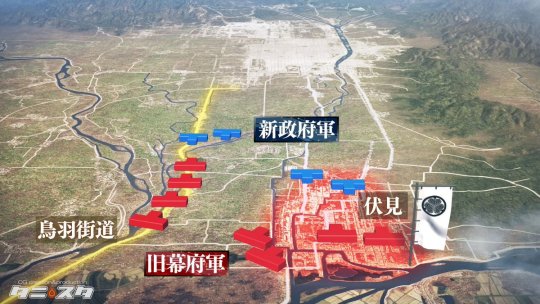
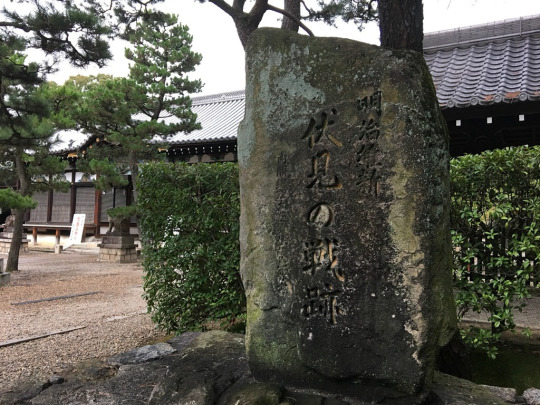

Sean bienvenidos Japonistasarqueologíacos, a una nueva publicación síntesis, del país del Sol naciente, una vez dicho esto póngase cómodos que empezamos. - Vamos a hablar de la batalla de Toba-Fushimi 27 de Enero 1868-31 Enero 1868, que forma parte de las Guerras Boshin, de carácter civil. - Está batalla la vamos a ver a través del arte que fue realizado por Tsukioka Yoshitoshi, perteneciente al Ukio-e. ¿Conocían la batalla? - Espero que os guste y nos vemos en próximas publicaciones, que pasen una buena semana. - 日出ずる国から、日本の考古学へようこそ、新しい要約出版物へ。 - 民事上の戊辰戦争の一部である、1868年1月27日から1868年1月31日にかけて行われた鳥羽・伏見の戦いについてお話します。 - 浮世絵に属する月岡芳年の作品を通して、この戦いを見てみます。 彼らはその戦いを知っていたのか? - 気に入っていただければ幸いです。今後の投稿でお会いしましょう。良い一週間をお過ごしください。 Welcome to Japanese archaeology, to a new summary publication, from the country of the rising sun. Having said that, make yourself comfortable and let's get started. - We are going to talk about the battle of Toba-Fushimi January 27, 1868-January 31, 1868, which is part of the Boshin Wars, of a civil nature. - We are going to see this battle through the art that was made by Tsukioka Yoshitoshi, belonging to Ukio-e. Did they know the battle? - I hope you like it and see you in future posts, have a good week.
#日本#歴史#ゲラボシ#鳥羽伏見#明治時代#戦争#浮世絵#美術#月尾嘉男#将軍#総力戦#京都#レジオンデカンサイ#-#japan#history#Guerraboshin#TobaFushimi#Meijiperiod#War#ukioe#art#TsukiodaYoshitoshi#Shogun#totalwar#Kyoto#regiondekansai
31 notes
·
View notes
Text

【かいわいの時】弘仁三年(812)六月三日:摂津国長柄橋を架設(大阪市史編纂所「今日は何の日」)。
長柄架橋の確実な記録としては、まず
1)(812年)弘仁三年六月己丑に使いを遣わして摂津国の長柄橋を造る(訳)。『日本後紀』
が挙げられます。ただし、この橋は
2)(853年)仁寿三年十月戊辰に摂津国より、長柄、三国の2つの川には近頃は橋が断絶していて人馬が通せないので、堀江川に準じて2隻の船を配置して、渡しを設置したいと伺いをたててきたので許可をした(訳)。『文徳実録』
とあり、50年もたたないうちに廃絶されていたと考えられます。以後、再架されることはなかったとみえ、「長柄橋」は伝説の橋となって和歌や屏風絵にわずかに残った橋柱のみが取り上げられる世になります。
3)(905年)世の中にふりぬるものは津の国のながらの橋と我になりけり。難波なるながらの橋も造るなり今は我身を何にたとへん。『古今集』
4)(958年)御屏風の絵に、ながらの橋柱のわづかに残れる形ありけるを 葦間より見ゆるながらの橋柱昔の跡のしるべなりけり。『拾遺和歌集』
5)(1000年初頃)天王寺に詣でしに、長柄の橋を過ぐとて 我ばかりながらの橋はくちにけりなにはのこともふるる悲しな。『後拾遺和歌集』
再架のうわさもあったようですが(3)、天徳二年(958)以前に描かれた「天暦御時御屏風」(現存せず)に「長柄の橋柱のわづかに残れる」風景が取り上げられており(4)、再架はかなわなかったようで、(5)に見るように「往時を偲ぶ」ばかりとなります。
ところが、藤原頼通一行が永承三年に高野山参詣した時の記録では
6)(1045年)過御長柄橋下之比、漸二昏黒鵜飼等各燃笹井火、普照行路(長柄橋下を過ぎると、鵜飼いが篝火を焚き、航路を照らす)。『宇治関白高野山御参詣記』
とあり、同時代の赤染衛門の歌(5)と矛盾しますが、赤染衛門も編集に加わったとされる『栄花物語』の延久五(1073)条には
7)(1073年)此處はいづくぞと問はせ給ふ、東宮太夫ぞつたへ問ひ給ひ此處は長柄となん申すといふ程に、其橋はありやと御尋ねさせ給へば候ふ由申す。御舟とゞめて御覧ずれば古き橋の柱たゞ一つ残れり
となっており、「長柄橋下」は「長柄の橋柱のもと」と解するのが適当と思われます。
この(6)『宇治関白高野山御参詣記』は、長柄橋の位置が相対的にですが特定できるので貴重です。とゆうのは、「長柄橋下」の前・後が
8)弥有往還之煩、而江口瀬間、以葦拵垣、積柴候堰、河流決移、已如旧跡(江口に向けて葦・柴を薙ぎ流路を定めながら進む)
9)入夜着御熊川、国司岸山作茅葺雑舎、為行事所、其西五六段許拵廻葦垣、為御船寄所(夜になり熊川の宿に着く。国司が茅葺きの粗末な屋舎作り、臨時に宿舎とし、その西側に葦垣をめぐらせて船着場とした)
となっており、これから「江口~(淀川)~長柄(橋)~(くま川)~船着場」のラインが確認されます。「くま川」については、鐘成は
10)長柄にては長柄川といひ、いにしえは長柄より下をくま川。『摂津名所図会大成』
としており、「長柄川」はさておき、「中津川」の下流に当たることは間違いないと思われます。
以上より、伝説の「ながらの橋」の架橋位置は
(結論)(旧���淀川と(旧)中津川の分岐点に架けられた。
(写真)▼暁鐘成著・松川半山画『淀川両岸一覧 下り船之部』1861(早稲田大学図書館蔵)より「長柄三ツ頭 長柄川 同渡口」
「三つ頭」をはさんで手前が「淀川」「毛馬の渡し」、向こうが「長柄川」「長柄の渡し」。奥に六甲山、画面の左手が南で大坂市街。「三つ頭」の向こう側「長柄の渡し」のあたりが「ながらの橋」の架橋位置と考えられます。ママ。当時の一般的な呼称は中津川。
12 notes
·
View notes